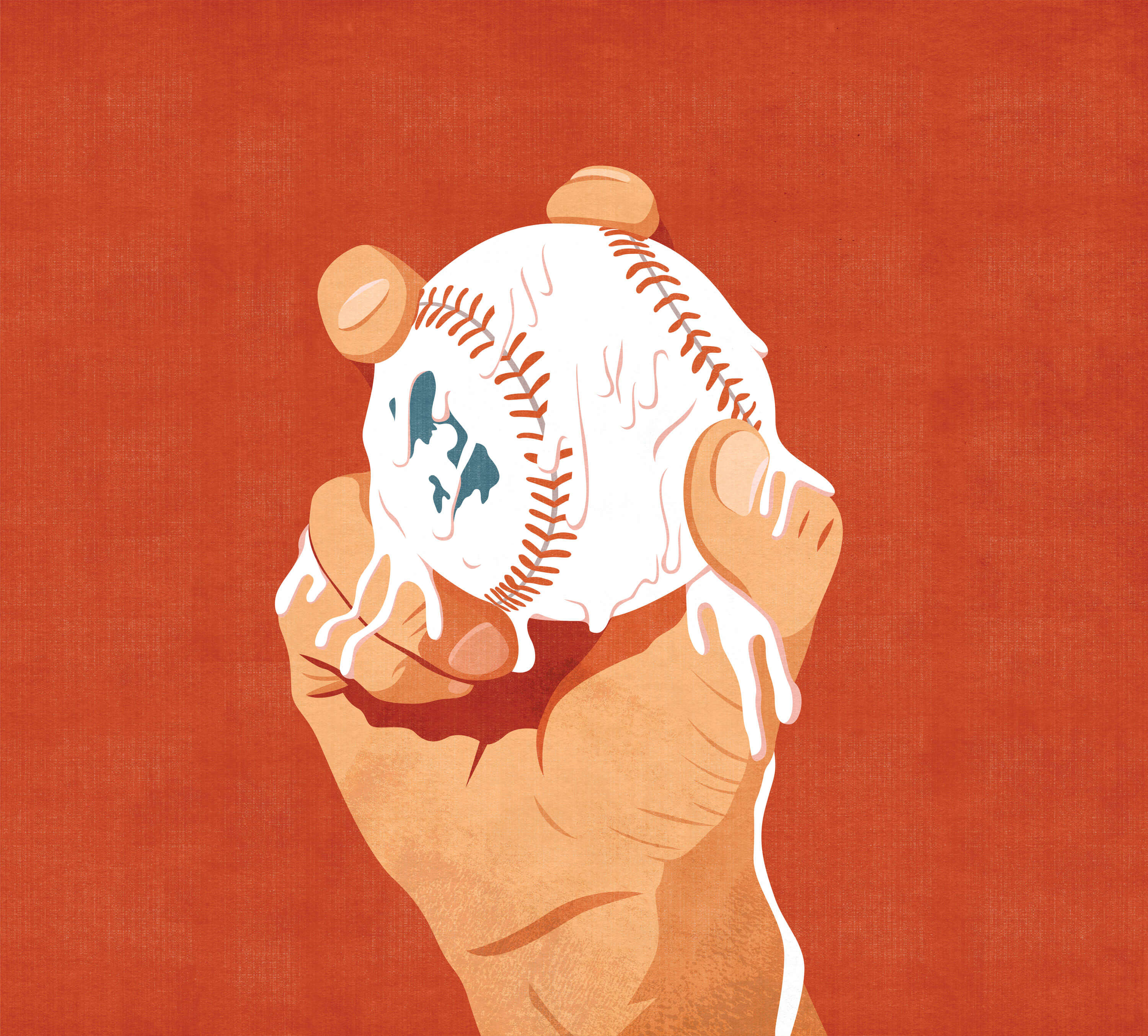
Is Climate Change a Game Changer for MLB?
How temperatures affect umpires’ pitch calling.
IT’S HARD ENOUGH to reach base when pitchers like Aroldis Chapman and Jacob deGrom throw the high heat. But what about when Mother Nature does?
A study by Associate Professor of Economics Eric Fesselmeyer found that Major League Baseball (MLB) umpires call pitches less accurately in uncomfortable temperatures, with performance at its worst in extreme heat conditions.
The analysis shows that the pitch-calling error rate is about 1 percentage point worse when temperatures are above 95 degrees, while accuracy is highest in games played in 80- to 90-degree weather. The research was possible because MLB uses pitch-tracking technology that measures whether non-batted pitches are strikes or balls as they cross home plate.
The results raise the prospect that America’s pastime could be impacted by climate change, as warming temperatures and more frequent heat waves threaten to cause a further decline in officiating.
“The drop in accuracy may seem small, but it is non-trivial for this high-revenue, high-stakes industry,” says Fesselmeyer. “Moreover, high temperatures cause an even greater decrease in accuracy on close-call pitches along the edges of the strike zone.”
Fesselmeyer’s research has implications beyond baseball. If workers as experienced and well versed in their craft as MLB umpires are susceptible to the heat’s influence, the results are especially worrisome for industries that rely on less-experienced and lower-skilled workers, such as agriculture, construction, and manufacturing, which are likely less capable of mitigating the impact of rising temperatures.
A paper summarizing Fesselmeyer’s work was published in the Southern Economic Journal.